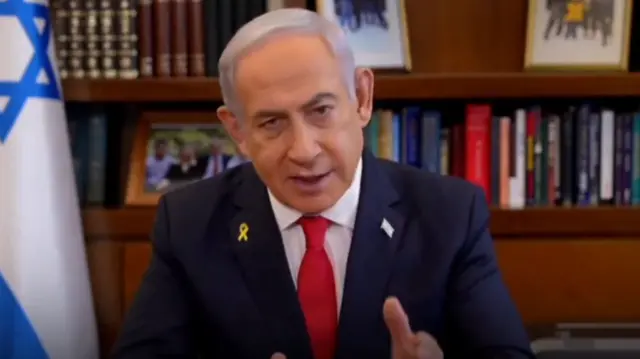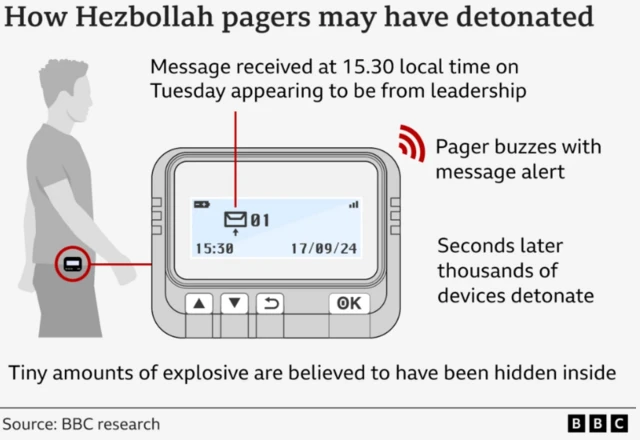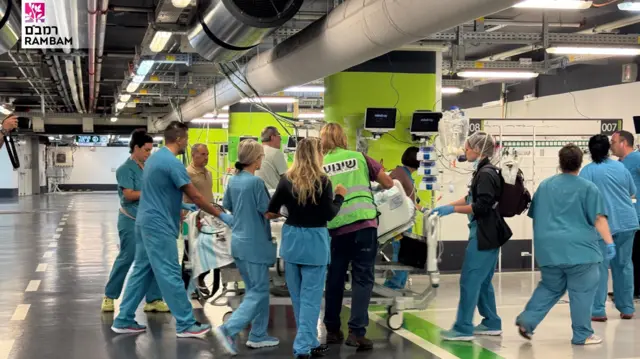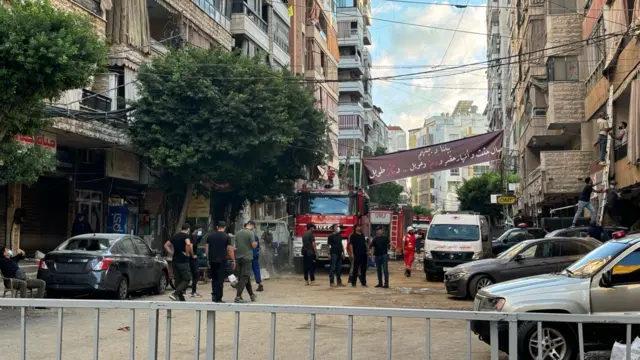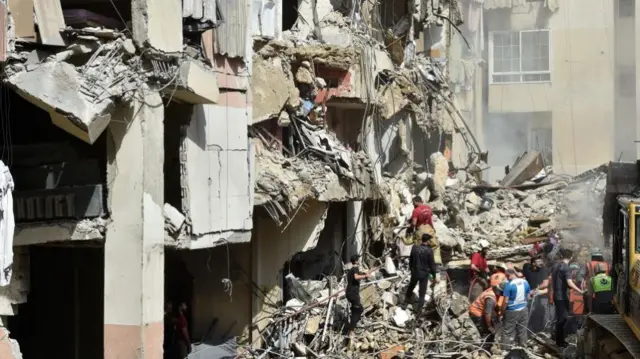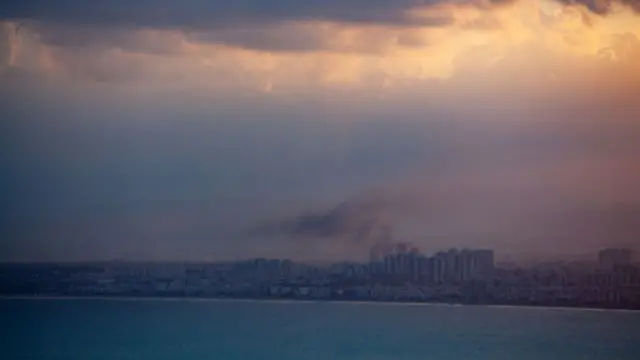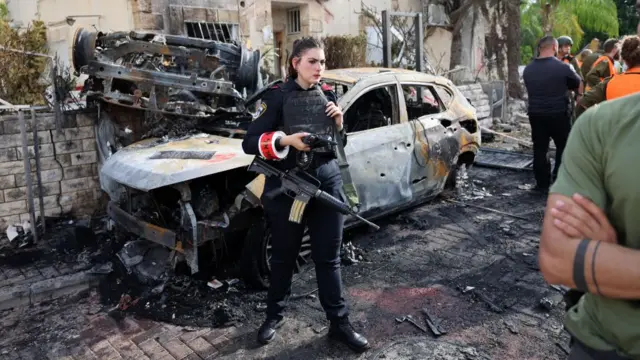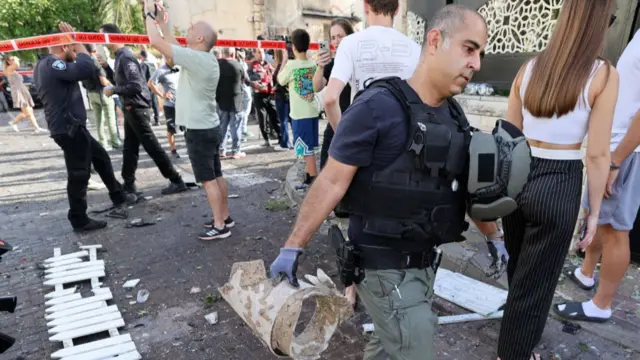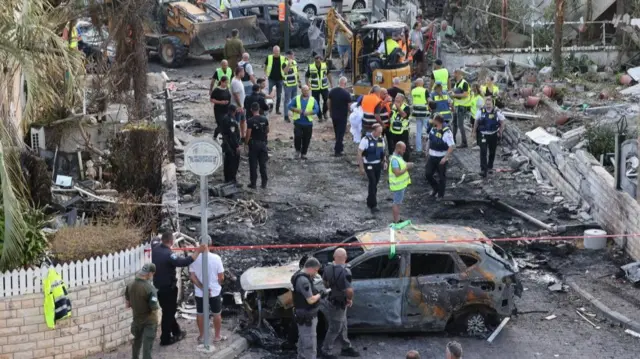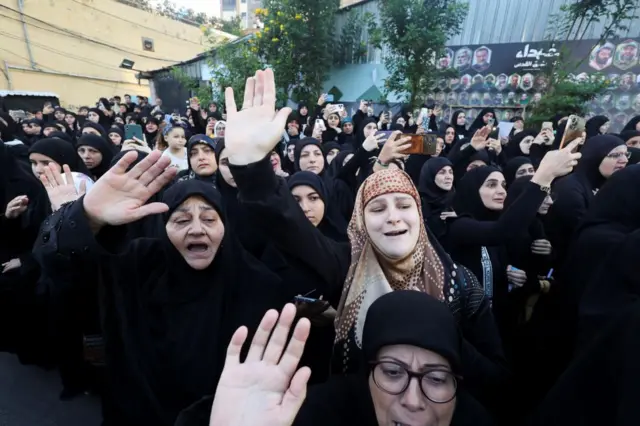Hezbollah strikes reach deeper into Israel than any attack so farpublished at 13:40 BST 22 September 2024
Hezbollah’s strikes overnight hit towns further south in Israel than in any attack since the current conflict between Israel and the Iranian-backed militia began on 8 October.
Coupled with Israeli attacks in Beirut, it means the current phase of the conflict has spilled out of the border region to which it has been largely confined in recent months.
Cross-border fighting escalated a day after Gaza-based Hamas attacked Israel on 7 October, killing around 1,200 people and taking 251 hostages back to Gaza. Hezbollah is allied with Hamas.
Hezbollah has maintained thousands of fighters and a large missile arsenal in southern Lebanon, along the border with Israel, since Israeli troops withdrew from Lebanon in 2000.
The militia was established in the early 1980s to oppose Israel and is backed by the region's most dominant Shia power, Iran. The group has grown into a political force and has participated in national elections since 1992.
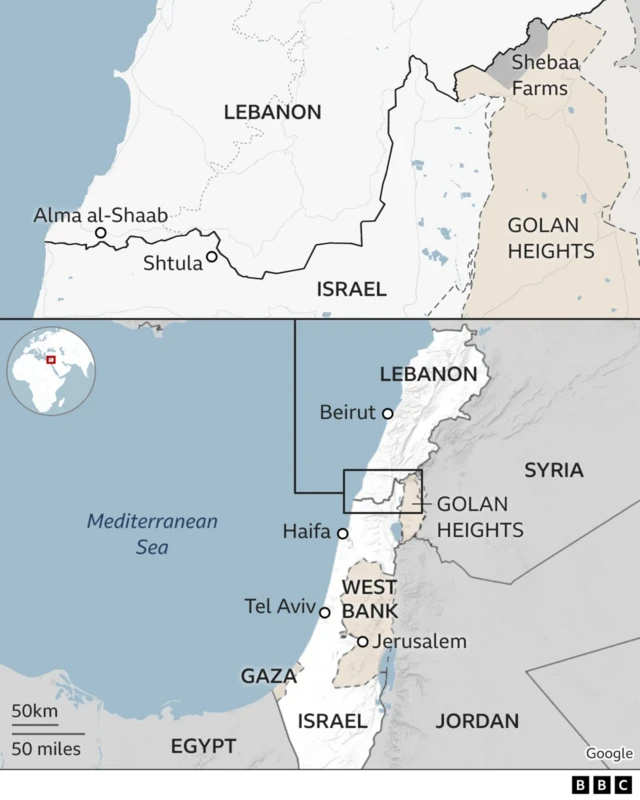
Most fighting between Israel and Hezbollah has taken place in the border region, but last night's Hezbollah strikes reached as far south as Haifa
